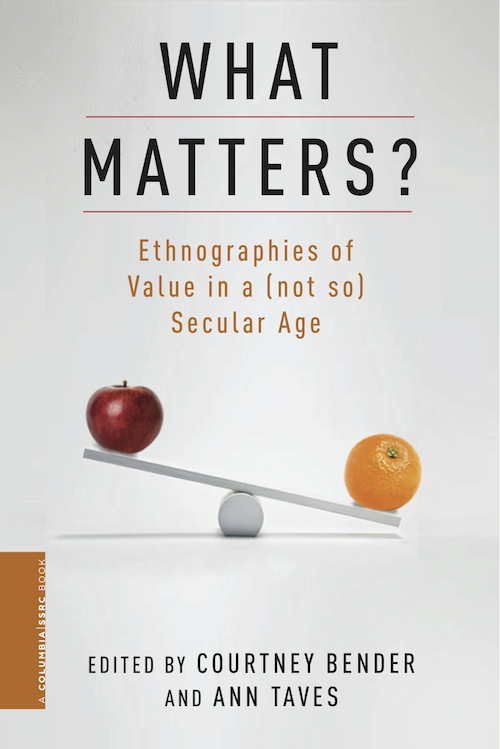 Columbia University Press has just released What Matters?: Ethnographies of Value in a Not So Secular Age, edited by Courtney Bender and Ann Taves. The product of a convening organized by the Social Science Research Council, the School for Advanced Research, and Columbia University, the volume collects eight chapters that consider different cases of meaning-making that challenge the categories of “religious” and “secular.” From the introduction:
Columbia University Press has just released What Matters?: Ethnographies of Value in a Not So Secular Age, edited by Courtney Bender and Ann Taves. The product of a convening organized by the Social Science Research Council, the School for Advanced Research, and Columbia University, the volume collects eight chapters that consider different cases of meaning-making that challenge the categories of “religious” and “secular.” From the introduction:
What does it mean to pursue, inhabit, or lead a valuable, ethical life in a secular age? This question has gained renewed attention, and importance, as scholars in the last decade have challenged the way that we think about secularity and what some have termed our secular age. Long gone are the days when social scientists regarded religion as an anachronism, fading into our collective past or remaining on the margins of culture as a sideshow curiosity. Gone, too, are the days when scholars linked the language of spirits, haunting, and the spectral to investigations of the premodern and primitive: more and more frequently, enchanted language and ideas come alive in studies of modernity. The wholesale rethinking of what the secular means and how rethinking this category reframes our understanding of religion has been the driving engine of numerous recent investigations. At this point, however, we cannot help but notice that rethinking what the secular means opens up new ways of approaching the question, what does it mean to be secular? How do people in our secular (or not so secular) age decide what matters, what goals to pursue, and what things are of most value? When does the question of what matters come to be a question at all, and for whom?
Read more of the excerpt here.











